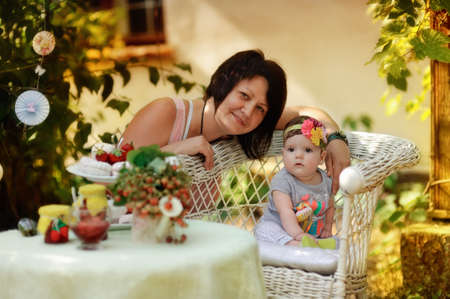Introduction to Single Parenting in Modern Britain
Single parenting has become an increasingly common family structure across modern Britain, reflecting broader social changes and evolving attitudes towards relationships and family life. Today, more than one in five families with dependent children are headed by a single parent, demonstrating how this way of living is woven into the fabric of British society. The experiences of single parents are as diverse as the nation itself, shaped profoundly by the rich tapestry of cultures that make up multicultural Britain. In this context, single parenting does not exist in isolation but is deeply influenced by cultural traditions, expectations, and community support networks. For many, balancing heritage with the demands of solo parenthood brings both unique strengths and particular challenges. As we explore the landscape of single parenting in the UK, it is vital to recognise how multicultural backgrounds shape daily routines, values, and approaches to raising children, making each family’s journey distinct yet interconnected within the wider British experience.
Cultural Diversity and Family Structures
Britain’s multicultural landscape brings a rich tapestry of family structures, beliefs, and expectations—each shaping the single parenting experience in unique ways. Cultural traditions often influence how single parenthood is perceived within different communities, as well as the level of support or stigma single parents may encounter. For example, in some cultures, extended families play an active role in raising children, offering practical help and emotional backing to single parents. In contrast, other communities may hold traditional views on marriage and parenting, sometimes leading to social isolation or judgement for those raising children alone.
Community support can be a lifeline for single parents, but its availability varies significantly across cultural groups. Some faith-based or community organisations provide tailored resources—such as childcare assistance or mental health counselling—while others may lack such infrastructure. Attitudes towards seeking external help also differ; in some cultures, turning to professional services may be encouraged, whereas in others it might be seen as a last resort.
| Cultural Group | Family Support Systems | Common Challenges | Community Resources |
|---|---|---|---|
| South Asian British | Extended family involvement | Stigma around divorce/separation | Faith centres, women’s groups |
| Afro-Caribbean British | Grandparental support common | Economic pressures, housing issues | Church networks, local charities |
| White British | Nuclear family focus | Lack of informal support networks | Council-run parenting courses |
| Eastern European British | Distant extended family (abroad) | Language barriers, isolation | Bilingual community advisors |
Understanding these cultural nuances is essential for professionals supporting single-parent families. Tailoring guidance and resources to reflect both individual and cultural needs can help reduce stigma and build resilient support systems for all single parents in Britain’s diverse society.

3. Navigating the British Welfare and Education Systems
For single parents in multicultural Britain, manoeuvring through the intricacies of the welfare and education systems can be both daunting and overwhelming. Accessing government support, such as Universal Credit or Child Benefit, often requires navigating complex forms, eligibility criteria, and digital platforms—challenges that are further complicated for those with limited English proficiency or unfamiliarity with UK bureaucracy. Many single parents from diverse backgrounds may also experience uncertainty about their rights, leading to under-claiming vital support or feeling isolated in times of need.
When it comes to healthcare, single-parent families frequently face barriers such as long waiting times, language difficulties, and cultural misunderstandings. Finding culturally sensitive healthcare providers who understand specific dietary needs or family traditions is not always straightforward. Some parents may hesitate to seek mental health support due to stigma within their communities or fear of judgement by professionals unfamiliar with their background.
The journey through the British schooling system presents its own unique set of hurdles. Enrolling children in school, understanding catchment areas, and interpreting Ofsted reports can be particularly challenging for parents new to the UK or those whose previous educational experiences differ significantly from the British model. In addition, single parents often struggle to attend school meetings or participate in extracurricular activities due to work commitments or lack of childcare, which can impact their engagement with their child’s learning journey.
Despite these obstacles, many single parents demonstrate remarkable resilience and resourcefulness. They draw on community networks, local charities, and multicultural organisations for guidance and advocacy. However, gaps still exist—especially in providing accessible information and tailored support that recognises both the practical demands and emotional realities faced by single parents across Britain’s diverse cultural landscape.
4. Balancing Cultural Heritage and Integration
Single parents in multicultural Britain often find themselves walking a delicate line between preserving their cultural heritage and helping their children feel at home within wider British society. The unique blend of backgrounds in the UK brings both opportunities and complexities, especially for families where traditions, languages, and values may differ from those of the mainstream culture. For single parents, nurturing a sense of belonging while honouring their roots requires intention, creativity, and flexibility.
Maintaining Cultural Identity at Home
Many single parents take proactive steps to keep cultural traditions alive within their households. This could mean speaking their native language at home, celebrating cultural festivals, or preparing traditional meals. Such practices not only help children connect with their heritage but also foster pride and resilience as they navigate dual identities.
Strategies for Preserving Heritage
| Approach | Examples |
|---|---|
| Language Use | Bilingual storytelling, family conversations in native tongue |
| Cultural Celebrations | Observing Eid, Diwali, Chinese New Year, or other significant events |
| Food Traditions | Cooking and sharing recipes from family’s country of origin |
| Storytelling & History | Telling family stories, sharing history through books and oral tradition |
| Community Involvement | Joining local cultural groups or places of worship |
Encouraging Integration and Belonging in British Society
At the same time, single parents are keenly aware of the importance of their children feeling accepted in British society. Encouraging participation in school activities, sports teams, and local community events helps children build friendships and understand the norms of British life. Open discussions about similarities and differences can also empower children to embrace diversity both within themselves and among their peers.
Nurturing Dual Identity: Practical Tips for Single Parents
- Create Inclusive Routines: Blend home traditions with British customs—for example, enjoying Sunday roasts alongside traditional dishes.
- Promote Open Dialogue: Regularly talk with your child about their feelings regarding identity and belonging.
- Seek Support Networks: Connect with other single-parent families navigating similar experiences for advice and encouragement.
- Encourage Participation: Support involvement in extracurricular activities that represent both cultures.
- Celebrate Achievements: Recognise your child’s efforts to adapt while maintaining pride in their heritage.
This ongoing balancing act is an essential part of the single-parent experience in multicultural Britain—one that shapes both parent and child as they grow together within a richly diverse society.
5. Mental Health, Resilience, and Social Support
Single parenting in multicultural Britain often brings a unique set of psychological challenges. Balancing the demands of raising children alone, navigating cultural expectations, and managing financial pressures can take a toll on mental health. Many single parents may experience feelings of isolation, anxiety, or even depression, particularly if they are far from extended family or familiar community structures.
The Psychological Impact of Single Parenting
The emotional load for single parents is considerable. Guilt, stress, and exhaustion are common themes, especially when trying to meet both cultural norms and personal expectations. For those who have migrated or come from minority backgrounds, the pressure to maintain cultural traditions while adapting to British society can amplify these feelings. These experiences highlight the importance of acknowledging mental health as a vital aspect of overall wellbeing for single parents.
Strategies for Wellbeing and Resilience
Building resilience starts with self-care. Simple practices such as regular exercise, balanced nutrition, mindfulness activities, and carving out moments of rest can make a significant difference. Seeking professional support—be it through counselling services provided by the NHS or local charities—can also be invaluable. Embracing flexibility and being kind to oneself during difficult times are key strategies many single parents in Britain use to foster their own wellbeing.
The Role of Community Networks
Britain is home to a wealth of support networks tailored for single parents. Organisations such as Gingerbread offer practical advice, emotional support, and opportunities to connect with others in similar situations. Local community centres often host parent groups where friendships are formed over shared experiences. Faith-based organisations and multicultural associations also provide culturally sensitive spaces where single parents can access resources in their native languages and find comfort in shared values.
Support Groups: A Lifeline
Joining a support group can be transformative for many single parents. These groups offer a sense of belonging and understanding that is sometimes hard to find elsewhere. Whether online or face-to-face, sharing stories and advice with those who understand the unique joys and struggles of single parenting in multicultural Britain can help reduce feelings of isolation and boost confidence.
In summary, while the psychological challenges faced by single parents in multicultural Britain are real, so too are the strategies and support systems available to help them thrive. Focusing on mental health, building resilience through self-care, and tapping into vibrant community networks can empower single parents not just to cope—but to flourish.
6. Celebrating Strengths and Looking Ahead
As we reflect on the journeys of single-parent families in multicultural Britain, it is essential to recognise their remarkable resourcefulness and resilience. These families often navigate complex cultural landscapes, drawing on diverse traditions, languages, and support networks to create nurturing environments for their children. The ability to blend different cultural values enriches not only their own family units but also contributes positively to the broader British society.
The Power of Adaptability
Multicultural single parents demonstrate an impressive ability to adapt. They often juggle multiple roles—parent, provider, and cultural bridge—while managing the unique expectations that arise from both British society and their heritage backgrounds. This adaptability becomes a powerful asset, enabling them to teach their children openness, flexibility, and empathy towards others.
Building Inclusive Communities
Looking ahead, there is a pressing need for more inclusive policies and attitudes in the UK. Public services, schools, and community organisations should strive to better understand the specific needs of multicultural single-parent households. By actively engaging with these families and valuing their input, Britain can develop supportive frameworks that celebrate diversity rather than simply accommodate it.
Envisioning a Supportive Future
The future holds promise if society commits to fostering understanding and equity. This means advocating for accessible mental health support tailored to cultural nuances, flexible working arrangements, and educational resources sensitive to diverse family structures. Encouraging positive narratives around single parenthood will help dismantle stereotypes and empower families to thrive.
Ultimately, by recognising the strengths of multicultural single-parent families and championing inclusive change, the UK can continue to grow as a welcoming home for all its residents—where every family’s story is valued, supported, and celebrated.

